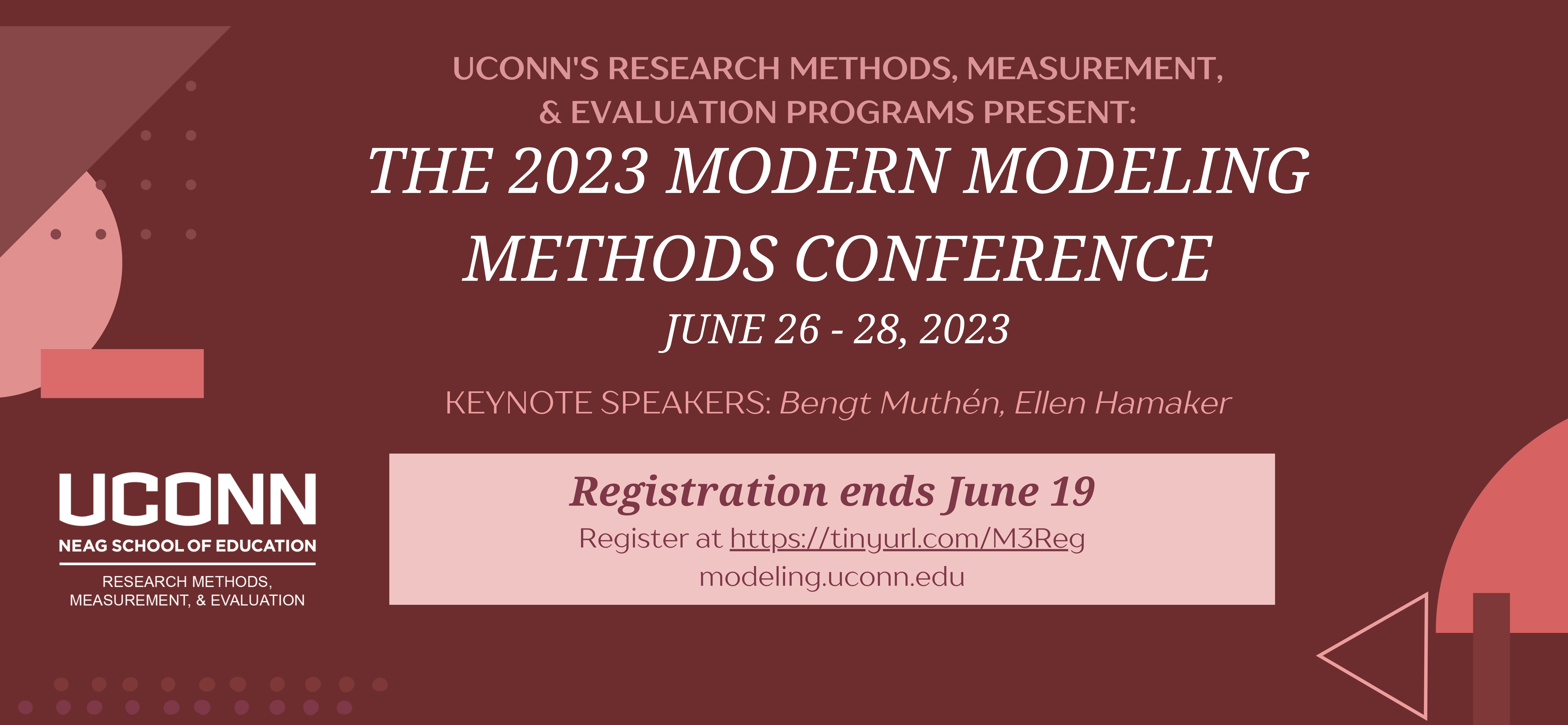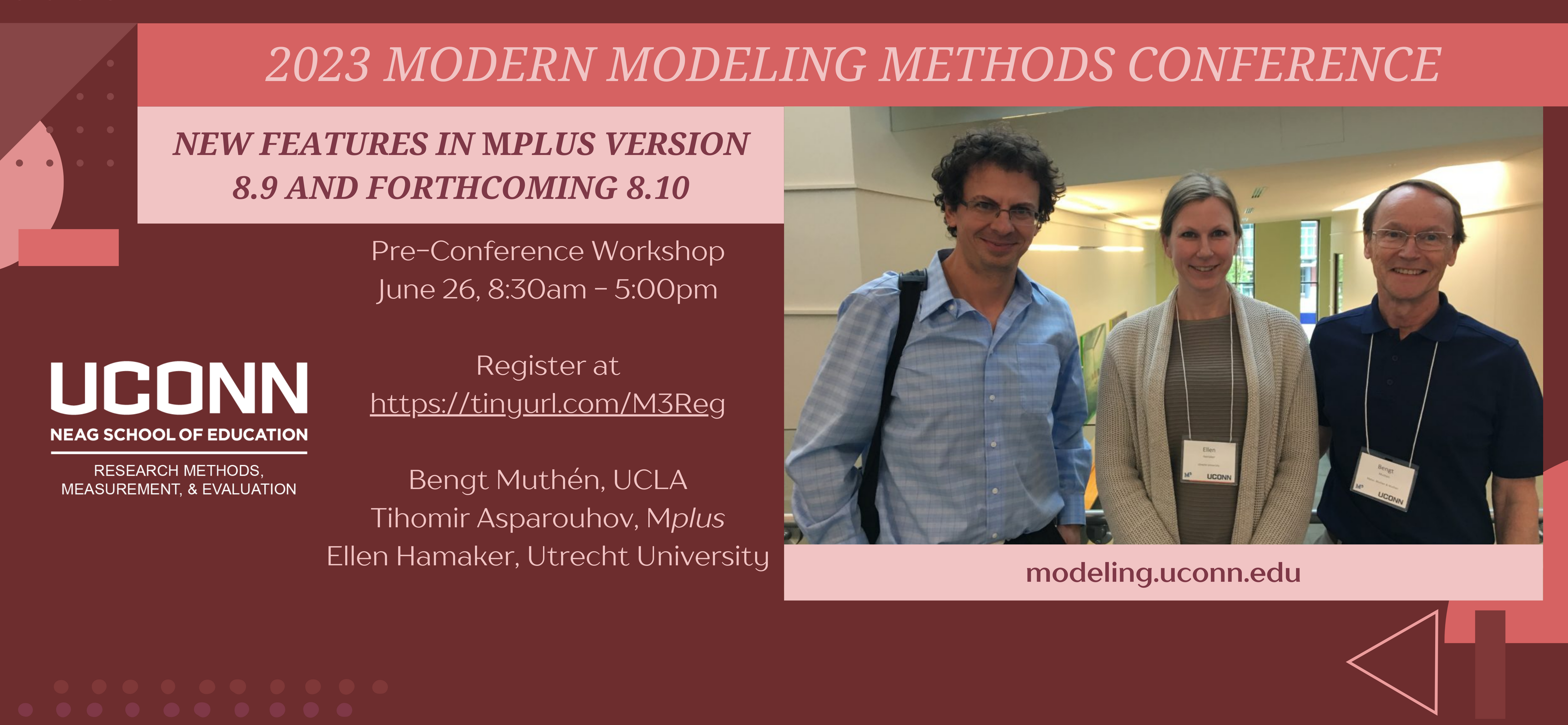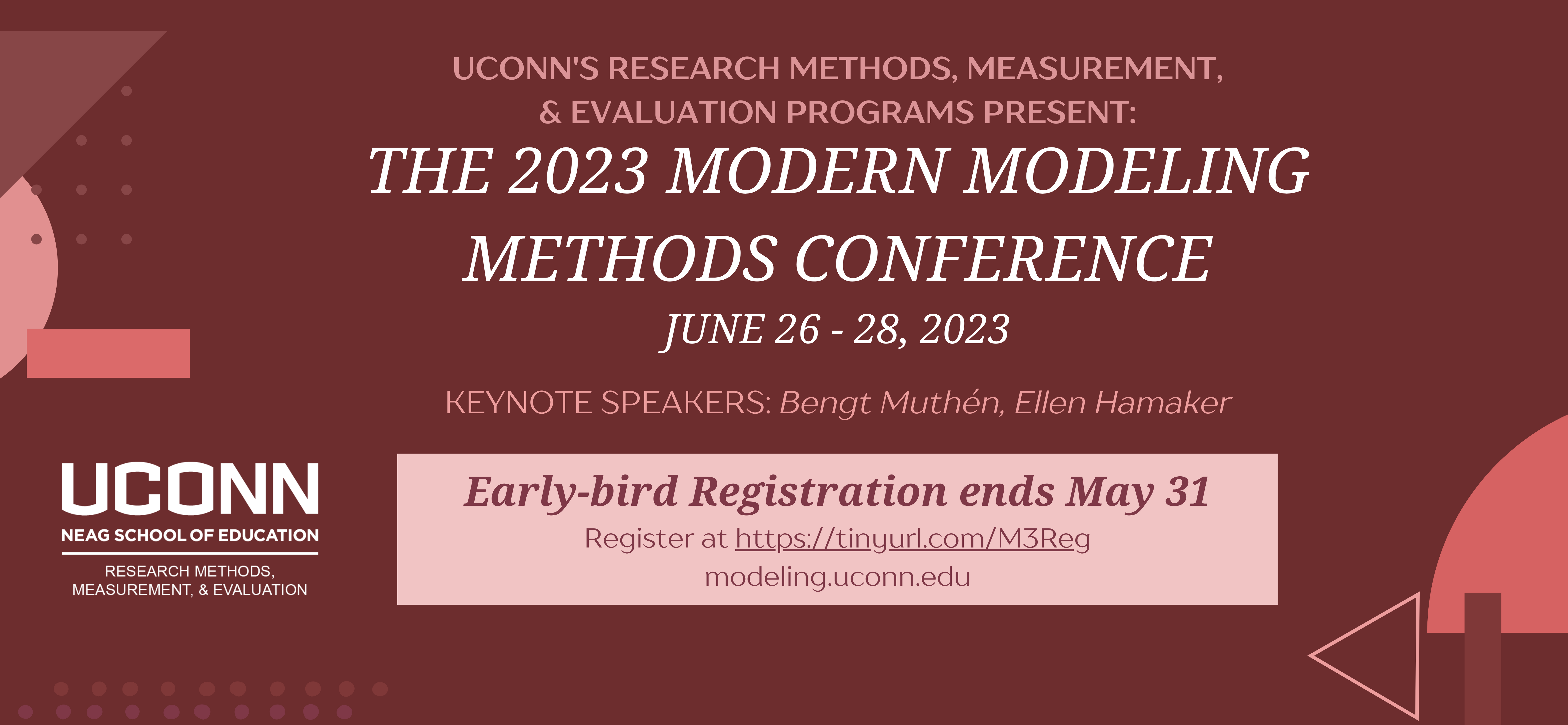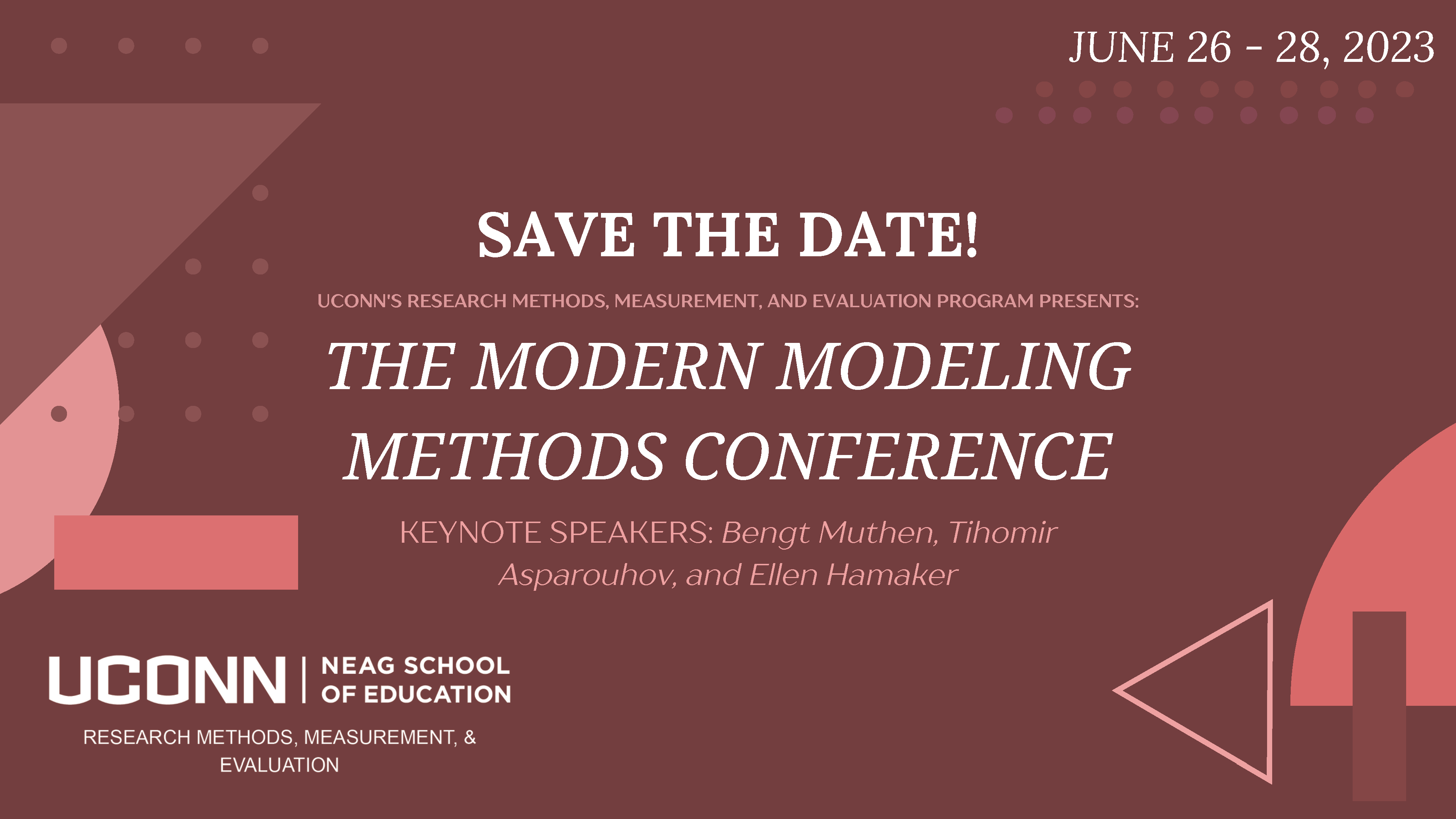RMME/STAT Joint Colloquium
Uncovering the Hidden Complexity of Statistical Models
Dr. Wes Bonifay
University of Missouri
Friday, October 13, at 11AM ET
https://tinyurl.com/rmme-Bonifay
Model complexity is the ability of a statistical model to fit a wide range of data patterns. Complexity is routinely assessed by simply counting the number of freely estimated parameters in a given model. However, complexity is also affected by configural form, that is, by the particular arrangement of the variables in the model. Recent considerations of configural complexity have found that certain models have an inherent tendency to fit well to any possible data (sometimes achieving superior goodness-of-fit when compared to alternative models that contain a greater number of free parameters!). In this talk, Dr. Bonifay will present a method for evaluating configural complexity and demonstrate how more sophisticated considerations of complexity can improve applied research in the social sciences.
